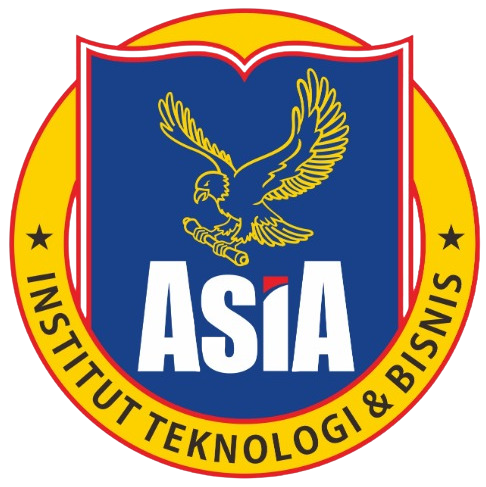Deconstruction of The Code of Ethics for Public Accountants Based on Siri Culture
DOI:
https://doi.org/10.32815/jibeka.v19i2.2249Keywords:
Local Wisdom Accounting, Code of Ethics for Public Accountants, Siri CultureArticle Metrics
Abstract
The research aims to formulate a code of ethics for public accountants based on siri 'culture. This research will deconstruct the code of ethics for Indonesian public accountants and instill siri' principles. This research instills local wisdom values into the code of ethics and gives birth to the concept of a new code of ethics with local wisdom culture in it. This research uses literature studies. The technique for analyzing data in this research uses the Pabbotting method. Pabbotting is a traditional term for uniting bridal couples in the Bugis tribe. The results of this research combine the principles of Siri 'culture with the code of ethics for public accountants, directing accountants to comply with the basic principles of the existing code of ethics for public accountants. Siri' culture also functions to help public accountants solve local problems in Indonesia.
Downloads
References
Aristotle. (2004). Nichomachean Ethics (E. Kenyowati, Trans.). Teraju.
Badewi, M. (2019). Nilai Siri’ dan Pesse dalam Kebudayaan Bugis-Makassar, dan Relevansinya terhadap Penguatan Nilai Kebangsaan. JSW (Jurnal Sosiologi Walisongo), 3(1), 79–96. https://doi.org/10.21580/jsw.2019.3.1.3291
Baud, C., Brivot, M., & Himick, D. (2021). Accounting Ethics and the Fragmentation of Value. Journal of Business Ethics, 168(2), 373–387. https://doi.org/10.1007/s10551-019-04186-9
Bertens, K. (2005). Etika. Gramedia Pustaka Utama.
Emzir, & Rohman, S. (2015). Teori dan Pengajaran Sastra. RajaGrafindo Persada.
Faisal, S. (2007). Format-Format Penelitian Sosial. PT. Raja Grafindo Persada.
Ghazali, N. A. M., & Ismail, S. (2013). The influence of personal attributes and organizational ethics position on accountants’ judgments: Malaysian scenario. Sosial Responsibility Journal, 9(2), 281–297. https://doi.org/10.1108/SRJ-08-2011-0072
Gurusiana. (n.d.). Getteng dalam Falsafah Bugis Tulisan ke-242. Retrieved July 12, 2025, from https://www.gurusiana.id/read/abdurraufshaleng/article/getteng-dalam-falsafah-bugis-tulisan-ke-242-267665#google_vignette
Hendryadi, Tricahyadinata, I., & Zannati, R. (2019). Metode Penelitian: Pedoman Penelitian Bisnis dan Akademik. Lembaga Pengembagan Manajemen dan Publikasi Imperium (LPMP Imperium).
Kamus Poerwadarminta. (1976). Kamus Poerwadarminta. Balai Pustaka.
Laica Marzuki. (1995). Siri’: Bagian Kesadaran Hukum Rakyat Bugis-Makassar. Hasanuddin University Press.
Mattulada. (1983). Islam di Sulawesi Selatan. In T. Abdullah (Ed.), Agama dan Perubahan Sosial. Rajawali.
Mattulada. (1991). Menyusuri Jejak Kehadiran Makassar dalam Sejarah (1510-1700). Hasanuddin University Press.
Mattulada. (1995). Latoa, suatu lukisan analitis terhadap Antropologi Politik orang Bugis. Hasanuddin University Press.
Mattulada. (1998). Sejarah, Masyarakat dan Kebudayaan Sulawesi Selatan. Hasanuddin University Press.
Mestika Zed. (2004). Metode Penelitian Kepustakaan. Yayasan Obor Indonesia.
Pemerintah Kabupaten Bone. (2020, December 27). Butir-butir dalam Falsafah Bugis Getteng, Lempu, Ada Tongeng. https://bone.go.id/2020/12/27/butir-butir-dalam-falsafah-bugis-getteng-lempu-ada-tongeng/
Pelras, C. (2006). Manusia Bugis. Forum Jakarta-Paris.
Prabowo, M. A., & Mulya, H. (2018). Constuction Of Ethic Code Of Public Accountant In Perspective Of Value Of Bugis Culture. International Journal of Applied Business & International Management, 3.
Primaraharjo, B., Handoko, J., Katolik, U., & Mandala, W. (n.d.). Pengaruh Kode Etik Profesi Akuntan Publik Terhadap Kualitas Audit Auditor Independen Di Sruabaya (Vol. 3, Issue 1).
Rahim, A. R., Ahimsa-Putra, H. S., & Laoddang, S. (2011). Nilai-Nilai Utama Kebudayaan Bugis. Ombak.
Sarwono, J. (2006). Metode penelitian kuantitatif dan kualitatif.
Setiawan, J., & Sudrajat, A. (2018). Pemikiran Posmoderenisme dan pandangannya terhadap ilmu pengetahuan. Gadjah Mada University.
Sri, O., & Wilujeng, R. (2018). Filsafat, Etika Dan Ilmu: Upaya Memahami Hakikat Ilmu dalam Konteks Keindonesiaan.
Universitas Islam Negeri Maulana Malik Ibrahim Malang. (n.d.). Harga diri dan rasa malu. Retrieved July 12, 2025, from https://uin-malang.ac.id/r/140601/harga-diri-dan-rasa-malu.html
Downloads
Published
How to Cite
Issue
Section
License
Copyright (c) 2025 Abdi Dzul Jalal Ikram, Iwan Triyuwono, Zaki Baridwan

This work is licensed under a Creative Commons Attribution-ShareAlike 4.0 International License.
Happy reading. Don't be shy to cite








